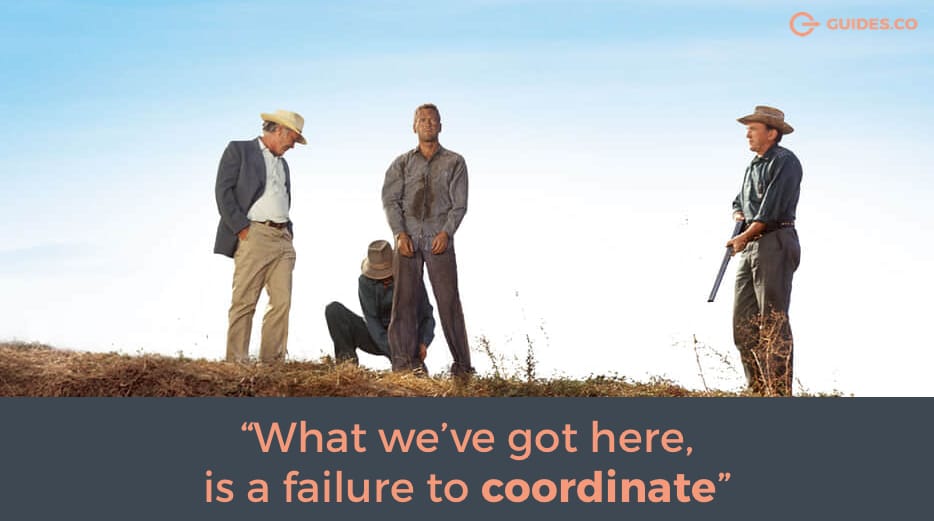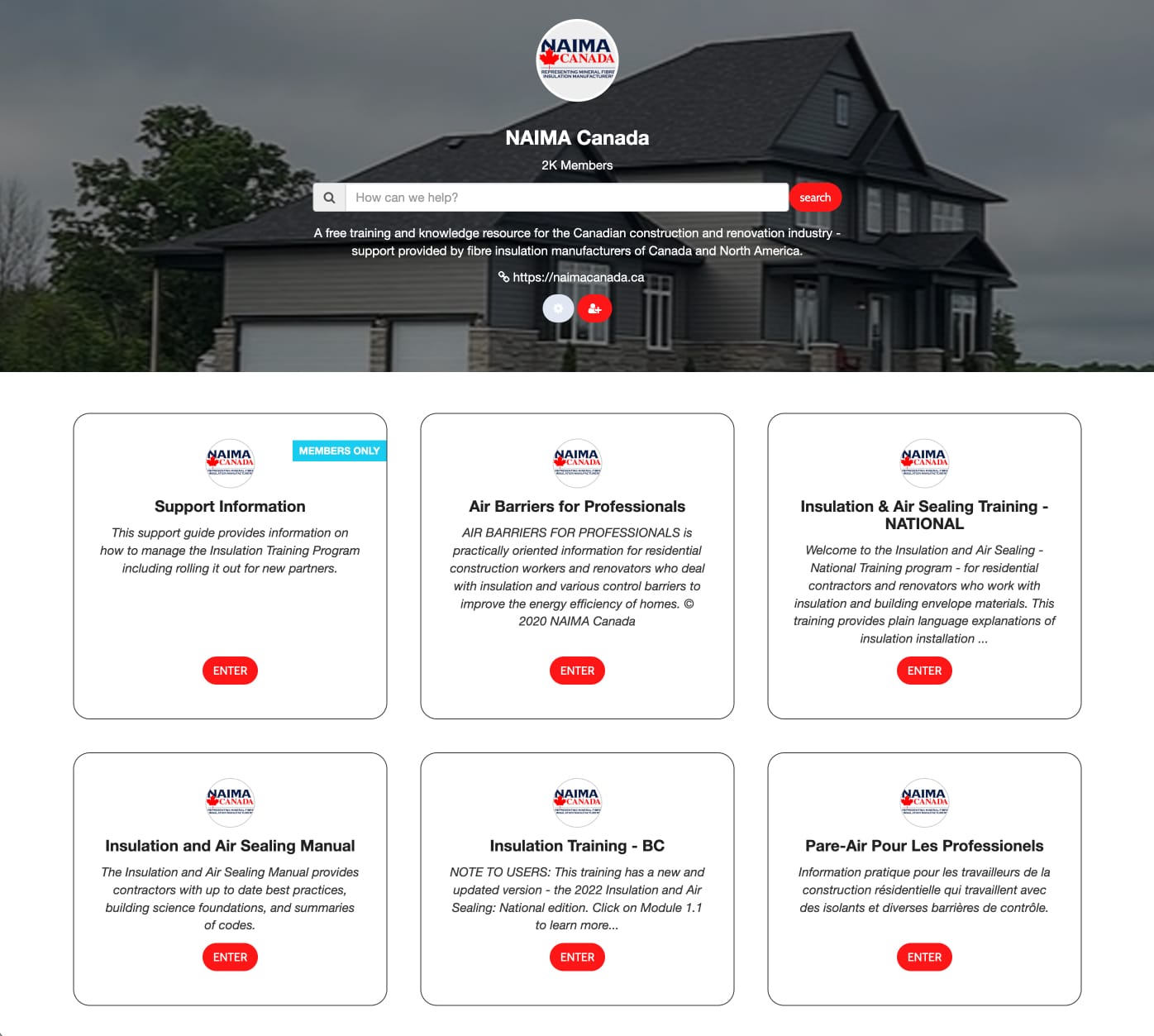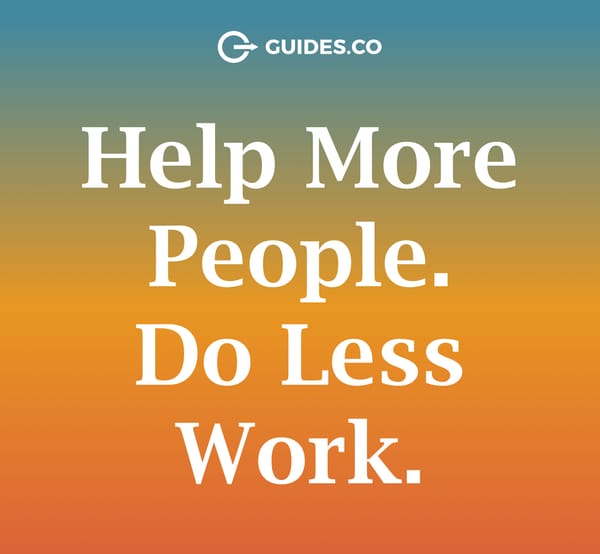Your Program Doesn’t Have an Execution Problem—It Has a Coordination Problem

Large scale programs often fail in the last mile of delivery. Here's how to fix it.
The Frustration: Why Large-Scale Programs Feel Broken
Ask anyone trying to navigate a large government initiative, infrastructure project, or industry-wide program, and they’ll tell you the same thing:
- “We waste so much time just trying to find information.”
- “Nobody seems to know what's going on.”
- “I don’t even know who to ask for the right information.”
- “By the time I get an answer, the situation has already changed.”
The result? Confusion. Inefficiency. Frustration. From construction workers waiting on updated safety protocols to contractors missing out on key policy changes, the real-world impact is massive.
The Hidden Cause: It’s Not Execution—It’s Coordination
Many leaders assume that when programs struggle, it’s an execution issue. But poor execution is just a symptom. The root cause? A failure to coordinate.
- Large programs involve multiple stakeholders across different organizations.
- Policies, standards, and best practices constantly evolve.
- Critical information often gets buried in email chains, PDFs, or outdated portals.
- Teams waste time reinventing the wheel instead of building on what’s already known.
When coordination breaks down, execution naturally falls apart. Workers get outdated information, new team members onboard too slowly, and strategic initiatives stall. The bigger the program, the bigger the coordination challenge.
The Trust Problem: When Confusion Breeds Distrust
Lack of coordination doesn’t just slow things down—it erodes trust. When people don’t have the information they need, when they’re left out of the loop, or when they receive conflicting updates, they don’t just lose confidence in the process. They lose trust in the program itself.
And when trust is lost, people disengage—or worse, they turn against the initiative. They stop following new policies, push back on leadership, or find workarounds that create even more inefficiencies. Instead of being aligned toward a shared goal, stakeholders become frustrated, skeptical, and resistant.
The Reality Check: Overcoming Coordination Barriers
While better coordination is the clear solution, implementing new approaches isn't without challenges. Organizations should be prepared to address these people-centered hurdles:
Entrenched Silos and Resistance - Organizational boundaries often become territorial over time. Departments that have historically "owned" certain information may resist more open sharing practices, viewing coordination initiatives as threats to their autonomy or influence. Guides.co provides a neutral platform that can help break down these silos without threatening established team structures.
The "Not Another Tool" Syndrome - Stakeholders already juggling multiple systems often resist adding "one more thing" to their workflow. This is why guides.co focuses on simplicity and accessibility—making it a solution that reduces complexity rather than adding to it.
The Change Management Challenge - New coordination approaches aren't just system changes—they're behavioral ones. Stakeholders who have developed personal workarounds or gained status as information gatekeepers may actively resist adoption. Guides.co's intuitive design and immediate value demonstration help overcome this resistance naturally.
Maintaining Momentum - Many coordination efforts start strong but lose steam when initial champions move on or priorities shift. With guides.co's low maintenance requirements and built-in engagement features, programs can sustain coordination excellence even through leadership transitions.
Balancing Standardization with Flexibility - Every stakeholder group has unique needs, yet effective coordination requires some standardization. Guides.co strikes this balance by providing consistent structure while allowing customization for different audience segments.
Overcoming Information Anxiety - In organizations with a history of poor coordination, stakeholders develop skepticism about "yet another attempt" to fix communication. Guides.co's visual approach and real-time updates help rebuild trust through transparency rather than promises.
Despite these challenges, organizations that implement dedicated coordination solutions like guides.co find the investment pays dividends in reduced friction, faster execution, and ultimately, restored trust. The key is addressing these human factors directly—with tools specifically designed for program coordination rather than adapted from other purposes.
The Solution: Fix Coordination, and Trust Follows
The good news? Programs don’t have to be this chaotic.
A well-coordinated program ensures:
✅ The right people have the latest, most accurate information—instantly.
✅ Onboarding is seamless, so new members contribute faster.
✅ Updates happen in real-time, so no one is working from outdated policies.
✅ Stakeholders stay aligned, reducing confusion and inefficiency.
✅ People trust the process—because it works.
Coordination At Scale: Real World Examples
We've helped hundreds of organizations reduce the complexity of coordination globally, for an industry, and on major projects:
Promoting Fire-Science To The FrontLines, Globally: With major changes in building construction, energy efficient upgrades, and furniture manufacturing, fires behave differently - they're faster burning, more intense, and explosive, resulting in higher firefighter mortality rates. Using Guides.co, an international coalition published and deployed a life-saving firefighting training program that is used by over 500 fire stations around the world.
Increasing Quality & Professionalism For Residential Contractors: When governments launch residential energy programs, they rely on private sector contractors to implement energy efficient upgrades. But in an unregulated market, ensuring those contractors can deliver quality of work professionally is no easy task. Guides.co is used across Canada by multi-stakeholder groups including governments, associations, and tradespeople to provide free training, program information, and policy changes in plain language to help boost quality and professionalism. Through Guides.co, over 45,000 contractors have upgraded their skills, and successfully navigated and implemented these programs to the benefit of residential owners nationwide.

Collaboration On Canada's Largest Renovation Project: Rehabilitating Canada's parliament buildings is the largest construction project in Canadian history. Opting for open communication and transparency, the program managers at PCL and Ellis Don selected Guides.co to coordinate over 1,000 workers - from architects to project managers - on everything from policies to site regulations. Having a central place where information is up to date and trustworthy made navigating a massive project with multiple stakeholders much more efficient and effective.
What we've learned from working with so many multi-stakeholder projects: When people have access to the information, skills, and answers they need – when they need them – people trust the program. And when people trust them, programs succeed.
Final Thought: Stop Blaming Execution—Start Fixing Coordination
The difference between a successful program and a failing one often isn’t the plan—it’s how well people stay aligned throughout execution. The world is moving faster than ever, and programs that can’t adapt in real-time will get left behind.
The solution? A single, reliable place where all stakeholders can access the information they need—when they need it. That’s how you fix a coordination problem—and rebuild trust.
Ready to improve your program delivery? Let’s talk.





